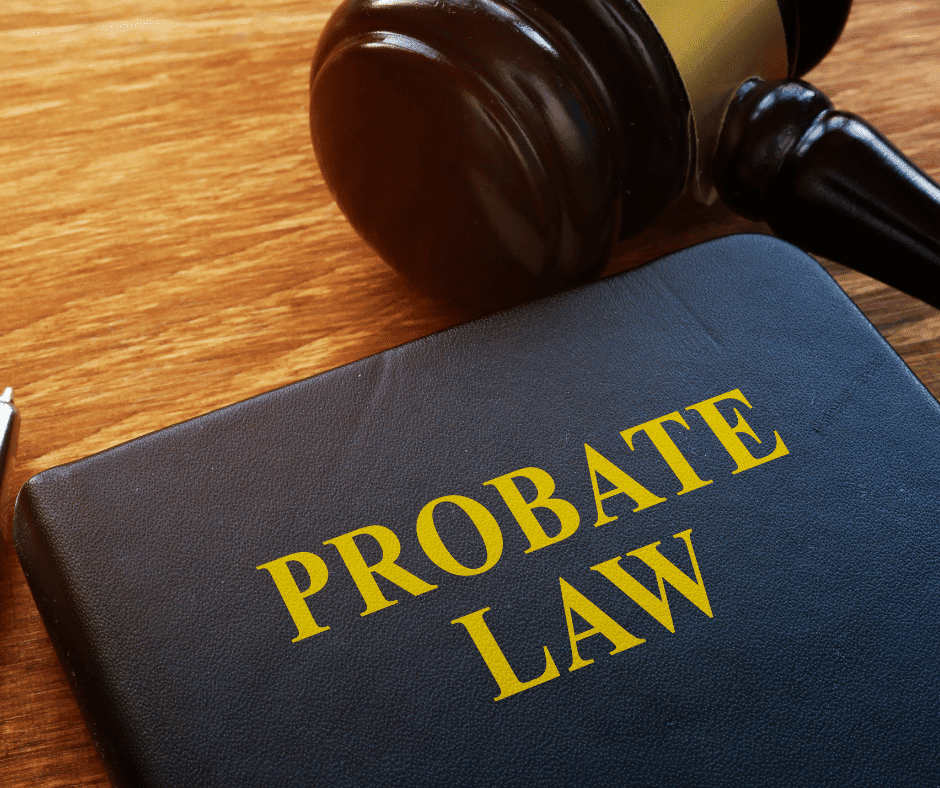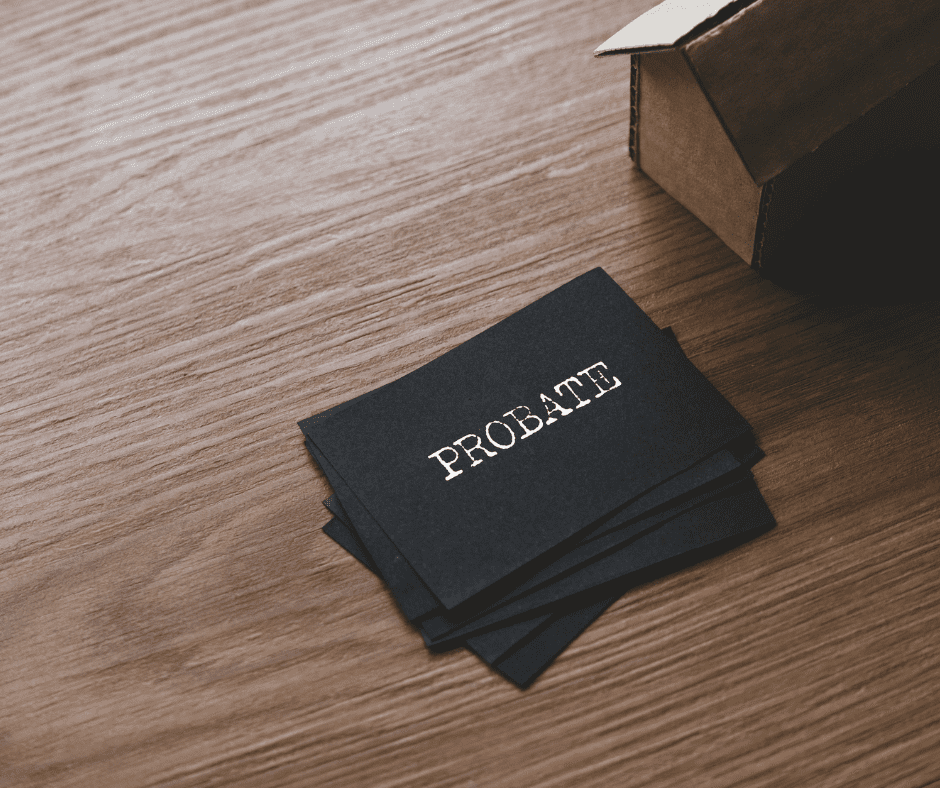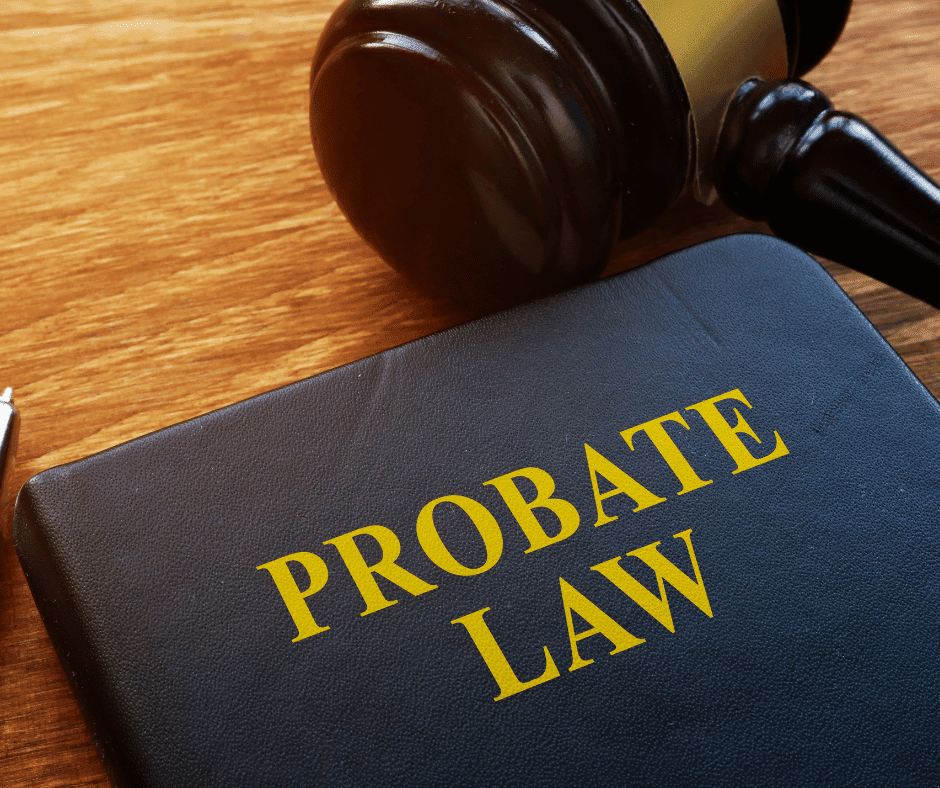What Exactly is Probate?
Probate is the legal process that confirms who has the right to deal with a person’s estate after they die. It gives the official authority to manage the deceased person’s money, property, and possessions.
The process depends on whether the deceased left a valid Will.
What Happens During Probate?
The person handling the estate must:
- Collect information about all assets and debts
- Value the estate for Probate and Inheritance Tax purposes
- Apply for the legal document that allows them to act
- Pay any debts, taxes, and fees
- Distribute what’s left according to the Will or the Rules of Intestacy
If there’s a Will, the Executor applies for something called a Grant of Probate.
Losing someone close is never easy. Alongside the grief, you may suddenly find yourself facing a mountain of paperwork and legal duties. If you’ve heard the word “Probate” but aren’t quite sure what it means or when it applies, you’re not alone.
Probate is the legal process of proving that a Will is valid and giving someone the authority to manage a person’s estate after they die. If there’s no Will, Probate still matters – but the process works slightly differently. But when is Probate required?
Here’s a simple example:
Your parent passes away leaving a house, some savings, and a Will naming you as the Executor. To sell the house or access the bank account, you’ll need Probate – a Court document giving you legal authority to act on behalf of the estate.
Why the Confusion Around Probate?
Many people don’t know whether they need Probate until they hit a roadblock at the bank or try to sell a home. Different rules apply depending on the size of the estate, how assets were owned, and whether there’s a Will. That’s why it’s important to understand the basics early on.
In this guide, we’ll explain:
- What Probate is and how it works
- When Probate is legally required in England
- When you might not need Probate
- What happens with or without a Will
- What sole beneficiaries and Executors need to know
- How to tell if you need Probate – a checklist
- The steps involved in the Probate process
- Common mistakes and how to avoid them
- When to seek legal advice
- Special considerations for families in the North East of England
Whether you’re an Executor, a family member, or just unsure where to begin, this guide is here to help – in plain English.
If there’s no Will, a close relative or friend applies for Letters of Administration instead.

Grant of Probate vs Letters of Administration
| Term | When It’s Used | Who Applies |
| Grant of Probate | When there is a valid will and a named executor | Executor named in the will |
| Letters of Administration | When there is no will, or the executor can’t act or has died | Closest living relative or next of kin |
These documents give someone legal authority to deal with the estate. Without it, you may be unable to deal with the deceased’s assets (sell or transfer them).
Understanding the difference helps you know what to apply for and avoid delays during what’s often a stressful time.
When is Probate Required in England?
Probate is usually required when the deceased owned land or significant assets in their sole name. If you’re asking, “When is Probate required?” or “Do I need Probate in the UK?”, this section will help you decide.

Common Scenarios Requiring Probate
You will typically need to apply for Probate if:
- The deceased owned property or land in their sole name
You cannot sell or transfer a property without a Grant of Probate or Letters of Administration. - They had high-value bank accounts or investments
Many banks and financial institutions set their own thresholds. If an account holds more than £5,000–£50,000, Probate may be needed before releasing funds. Always check with the provider.
Probate Thresholds Explained
There is no single legal threshold for Probate. Instead, each financial institution sets its own limit before requiring a Grant of Probate.
However, most banks and building societies will need Probate if:
- The total estate is worth more than £10,000–£50,000
- There are stocks, shares, or investments held solely
- The property is not jointly owned
It’s important to contact each institution involved to confirm their exact Probate requirements, or have a Solicitor do this on your behalf.
Other Signs Probate May Be Required
- The deceased did not leave a Will
- There are debts to settle before distributing the estate
- The estate includes business interests or foreign assets
If you’re unsure whether Probate is required, a quick conversation with a member of our Probate team can save time and stress. We offer guidance across the North East, helping you understand your duties and avoid delays.
When is Probate NOT Required?
While Probate is often essential, there are situations where it’s not needed. Understanding these can help you save time and avoid unnecessary paperwork.
Jointly Owned Property or Bank Accounts
If the deceased shared assets with someone else, those may not require Probate.
- Joint bank accounts automatically pass to the surviving owner.
- Jointly owned property (as joint tenants) transfers to the surviving owner under the right of survivorship.
You usually won’t need Probate for these cases, but always check how the property or account is held. If the property is held jointly as tenants in common, the deceased’s share does not automatically pass to the survivor and Probate will likely be needed.
If bank accounts are under the institution’s ‘Probate limit’, you will be able to close the accounts without Probate.
Assets That Usually Avoid Probate
- Nominated beneficiaries on life insurance policies or pensions. These are paid directly to the named person.
- Trust assets held outside of the person’s estate.
- Low-value personal belongings like clothing, furniture, and small items.
If the estate is straightforward and consists mostly of jointly owned or low-value assets, you may not need to apply for Probate at all.

Probate and Wills – Common Misconceptions
Many people believe that having a Will means you can avoid Probate. This isn’t always the case. Let’s clear up the confusion and explain how Wills and Probate work together.
Does a Will Mean You Don’t Need Probate?
No. Having a Will does not automatically mean Probate isn’t required.
If the estate includes solely owned property or assets over a certain value, Probate is almost always needed, even with a valid Will.
Common Queries Answered
Let’s tackle some frequently asked questions to make this clearer:
Do I need Probate if there is a Will?
If the estate includes significant assets or property held in the deceased’s sole name, a Grant of Probate will be required.
When a Will Might Not Require Probate
There are exceptions. You may not need Probate if:
- The estate is small and below Probate thresholds.
- Assets are held jointly and pass automatically to a surviving owner.
- Assets are nominated directly to a beneficiary (like life insurance).
If you’re unsure, speak with one of our Probate solicitors. Our team can guide you through every step.
Executors: What You Need to Know
If you are named as the Executor in the Will, you are responsible for managing the estate. This includes:
- Applying for the Grant of Probate (if required).
- Valuing assets.
- Paying any debts and taxes.
- Distributing the estate according to the Will.
Even if you are the only Executor and the only beneficiary, you may still need Probate to carry out these tasks.
Probate will be required if:
- The deceased owned property or land in their name only.
- The estate includes high-value bank accounts, shares, or investments.
- The total value of the estate exceeds the Probate threshold (set by banks or HMRC).
Being the only beneficiary does not automatically remove the need for Probate.
Key Takeaway
Probate isn’t based on how many Executors or beneficiaries there are. It depends on the value of what the deceased owned and how those assets were held.

How to Identify if You Need Probate
Many people ask, “How do I know if I need Probate?” The answer depends on what the deceased person owned, and how they owned it. Use this simple checklist to find out.
Step-by-Step Probate Checklist
Ask yourself the following questions. If you answer yes to any, Probate may be required:
- Did the person own property or land in their sole name?
- Probate is usually needed to sell or transfer ownership.
- Are there bank accounts, investments, or savings over £5,000–£50,000?
- Most banks set their own Probate thresholds. Some may require Probate even for amounts under £10,000.
- Are you being asked by a bank, insurance company, or pension provider to provide a Grant of Probate?
- Probate is required to release the funds held by the institution requesting this.
- Is there a business, shareholding, or foreign asset involved?
- These often require Probate to manage/sell or transfer.
- Were assets held in the deceased’s name only?
- Depending on value, solely owned assets often need Probate.
Common Situations Explained
- When my parent dies, do I need Probate?
It depends on their assets. If they owned a home, savings, or investments in their own name, you likely will. - How do I know if I need to apply for Probate or not?
Speak to Solicitors who will take details of the estate or start by listing all assets, checking their value, and confirming how they were owned. Contact financial institutions—they’ll tell you if they need Probate to release funds.
Assets That May Not Need Probate
You may not need Probate if:
- All assets were jointly owned with a spouse or civil partner.
- The estate is very small and under the bank’s threshold.
- The deceased nominated beneficiaries on pensions or life policies (these pass outside the estate).
Probate Made Simple – Your Next Steps with DMA Law
Dealing with Probate can feel overwhelming, especially during an emotional time. But understanding your responsibilities as an Executor or family member can help you make confident decisions. Here’s a quick summary of what we’ve covered:
- Probate is the legal process of handling a deceased person’s estate.
- You may need Probate if the estate includes property, high-value assets, or solely owned accounts.
- Wills don’t automatically remove the need for Probate, even if you’re the Executor.
- If there is no Will, Probate may still be required to handle the deceased’s estate; this is called Letters of Administration.
- Probate may not be needed for jointly owned assets or small estates.
- Executors and sole beneficiaries still often require Probate.
- Our step-by-step checklist can help you decide if you need to apply.
- Common mistakes can delay the process or cause disputes—professional advice helps avoid them.
- DMA Law offers expert Probate support across the North East of England.
If you’re unsure whether Probate is needed, or if you need help applying, get in touch with DMA Law. Our experienced Solicitors provide clear, practical advice tailored to your situation.
Visit our Probate Services page or contact us directly to speak to a friendly local expert today. We’re here to help you move forward with confidence.

